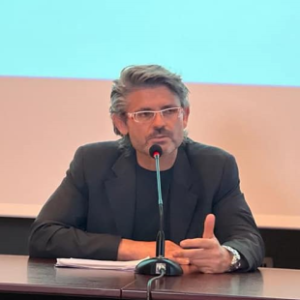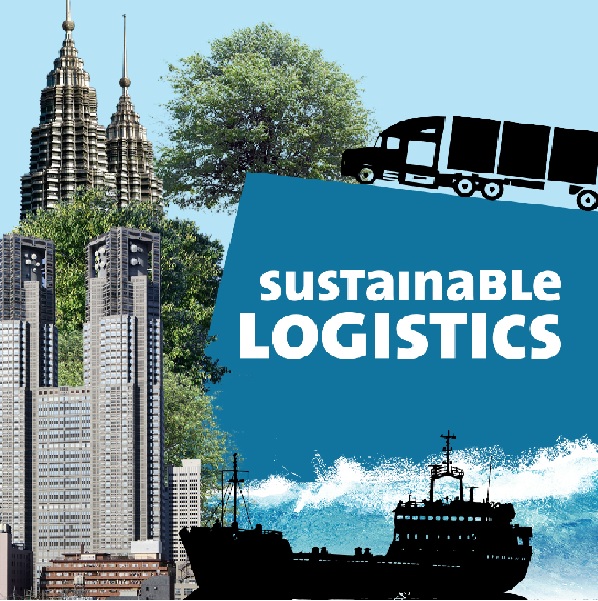VIU sits down with Professor Marco Mazzarino from Iuav University of Venice, who serves as the scientific coordinator of the Sustainable Logistics research unit within the TeDIS Program on Innovation at Venice International University, and coordinator of the VIU Summer School on Advanced Transportation, Logistics, and Supply Chain Management that aims to develop a unified approach aligning market needs with integrated sustainable transportation, logistics, and land-use planning. The conversation addresses the multifaceted concept of sustainability in logistics and transport, exploring current trends and envisioning future scenarios in the sector. Professor Mazzarino sheds light on the behavioral and systemic inefficiencies prevalent in mobility and logistics, the opportunities for digital innovation, and the challenges posed by global uncertainties and the potential shift towards deglobalization.
You coordinate a research unit on sustainable logistics. What does sustainability mean in the field of logistics and transport?
The question is obviously very broad. However, I believe that the problem of sustainability for those involved in mobility and logistics lies a lot in the fact - psychological, sociological and behavioral, even before technical - that we are all very used to seeing a lot of waste around us. We probably even appreciate them. Let's take a ride in the rush hour of city traffic, and we will see that almost all cars have a passenger on board. Public transport, outside peak periods, travels half empty. Not to mention the trucks we see on the highway. Do you know what's inside? 24% is empty. One in five trucks...
What should be done?
The extent of the problem is so great that there are prairies of opportunities to develop solutions, even in the digital field, to reduce this sea of inefficiency, which easily becomes not only something positive for the environment, but also for business. Many operators and organizations have intelligently seized these opportunities and are constantly developing them. We, as the ULS Unit, try to give our little theoretical and very pragmatic contribution by participating in various national and international projects.
What are the main trends currently in logistics?
Global scenarios are changing drastically. By now, those who plan and manage global logistics chains, so-called supply chains, have only one mantra in mind: uncertainty and risk have become a certainty. Structurally. Planning in this context is not easy and requires the development of new strategies.
How do you see the future in your sector?
Honestly, not too rosy. At the macro level, the world is increasingly realigning itself on geoeconomic and geopolitical blocs. At the micro level, the tendency to "do everything by myself", to "short" chains (some speak of deglobalization) is increasingly strong. This scenario of pseudo-autarchy, or neo-feudalism (which also brings with it strong perplexities about the gap between industrialized and non-industrialized countries), worries me a lot. The consequence, not too long-term, will be only one: a "geographic multiplication" of the consumption of resources, not to mention the risk of impoverishment of the territory, with the ultimate consequence of an increase in costs and prices. We'll go back to buying clothing or washing machines in installments, as it used to be. I believe that future generations will greatly regret the much-maligned globalization, which, for better or for worse, showed an open and interconnected world. These are aspects that we also promote in the context of our training initiatives, especially in our Summer School [on Advanced Transportation, Logistics, and Supply Chain Management].
--
 Marco Mazzarino is Scientific Coordinator of the VU Summer School on Advanced Transportation, Logistics, and Supply Chain Management together with Vittorio Marzano, University of Naples Federico II.
Marco Mazzarino is Scientific Coordinator of the VU Summer School on Advanced Transportation, Logistics, and Supply Chain Management together with Vittorio Marzano, University of Naples Federico II.
He is a professor of Transport Geography, Logistics and Supply chain management at Università Iuav of Venice, and head of the Sustainable Logistics Unit of the TeDIS Program on Sustainability at VIU.
VIU is one of the partners of the DISCO project (Data-driven and dynamic Space and Assets for Physical internet-led Urban Logistics and Planning) financed by the Horizon Europe Program. VIU's role within the project is to coordinate the Padua Living Lab which provides for efficient, responsive, and adaptive logistics processes in urban areas, reducing congestion, improving delivery times, and enhancing overall operational efficiency through the use of modular lockers for flexible storage solutions, and a network of logistics service providers connected through a real-time network.
Learn more about VIU's work on Sustainable Logistics






















